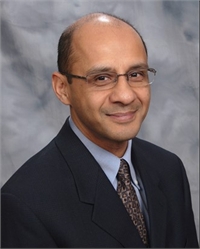
- This event has passed.
Long-Wavelength Infrared (LWIR) Hyperspectral Imaging for the Standoff Detection of Trace Surface Chemicals
Speaker

Anish K. Goyal
Block Engineering
Abstract
The detection and identification of trace chemicals on surfaces is of great interest for a variety of civilian and security applications. Sensitive techniques for trace surface detection already exist, but these usually require the physical transfer of chemicals from the surface of interest into the instrument. In some cases, however, it is desirable that detection occur in a standoff configuration and be non-destructive. Furthermore, it is often desirable to rapidly scan the surface and to map the chemical contamination with high spatial resolution. Laser-based, long-wave infrared (LWIR) hyperspectral imaging has been shown to be capable of addressing many of the requirements that are important to end users. These include the ability to engineer hand-portable systems that are eye-safe (class 1), provide high sensitivity detection
(micrograms/cm 2 ), operate at modest standoff distances (<1m to >10m), and achieve high areal coverage rates (potentially >100 cm 2 /s).
Wavelength-tunable quantum-cascade lasers (operating wavelength about = 7.5 – 12 um) are used to illuminate the surface of interest and a camera captures the diffusely reflected light. The laser wavelength is tuned synchronously with the camera such that reflectance of the surface in the form of a hyperspectral image cube (hypercube) in which each pixel represents the reflection spectrum of a single point on the surface. The unique spectral signature of chemicals can be detected with high sensitivity because of the very large absorption cross-sections for most chemicals in the LWIR.
Over the past 15 years, this technology has matured from initial feasibility demonstration (at MIT/LL) and then through the development of a series of prototypes under funding from IARPA, DoD, and DHS. It is currently on the cusp of being commercialized. In this talk, we will discuss the underlying technology, performance limits, and present examples of various applications.
Biography
Anish Goyal is the Vice President of Technology at Block Engineering. Responsibilities include the advancing of Block’s chemical detection products and the external-cavity quantum cascade lasers on which these products are based. Prior to joining Block, he was a member of the Technical Staff at MIT Lincoln Laboratory in the Laser Technology and Applications Group. His academic background is in Electrical Engineering, receiving a B.S. degree from Rensselaer Polytechnic Institute and Ph.D. from the University of California, Santa Barbara.
